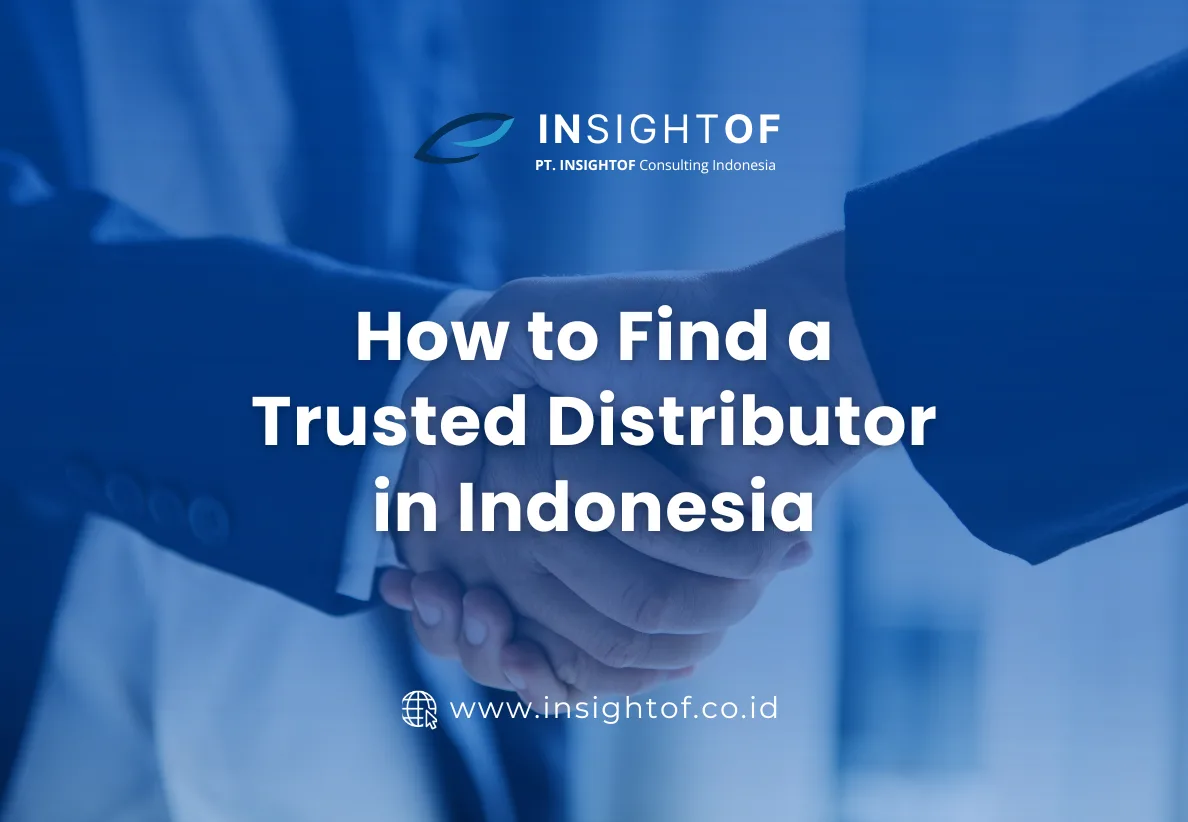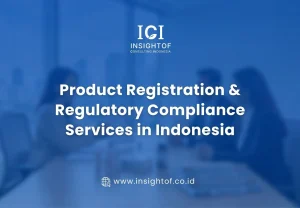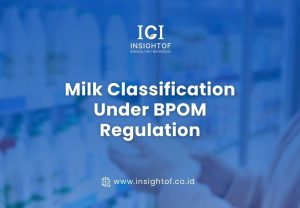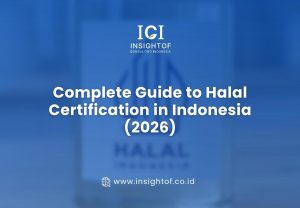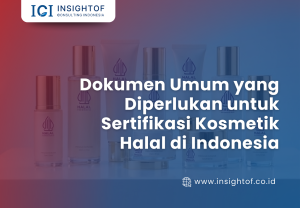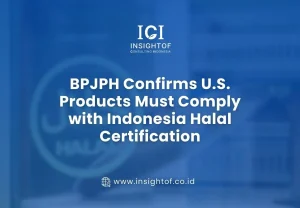Indonesia is a vast, dynamic market (the world’s fourth-most-populous country) with stringent regulations for cosmetics, food, and medical devices. Any exporter must navigate local laws and find a reliable partner to reach consumers across the archipelago. In Indonesia, the National Agency of Drug and Food Control (BPOM) – under the Ministry of Health – regulates drugs, cosmetics, food and beverages. Likewise, the Ministry of Health (Kementerian Kesehatan, or KEMENKES) oversees medical devices (via BPOM). In practice, this means every cosmetic, food, and medical product must be registered and approved before sale. For example, BPOM explicitly requires that all cosmetics and processed foods must be certified before distribution, and the USDA reports that all imported food and beverages need a BPOM “distribution authorization” before retail sale.
Because the rules are complex, choosing the right local distributor or agent is crucial. A good distributor helps with customs clearance, licensing, warehousing and reaching end-customers, while ensuring compliance with Indonesian law. Below we outline practical steps and checklists to help new exporters identify and vet trustworthy distributors, and to meet import, registration and permit requirements.
Understand Indonesia’s Regulatory Requirements
1. Get a Business License (NIB)
Foreign investors must obtain an NIB (Nomor Induk Berusaha) through Indonesia’s OSS system. It acts as a basic import license and is required before importing anything. You’ll need either a local distributor with an NIB or a PT PMA (foreign-owned company).
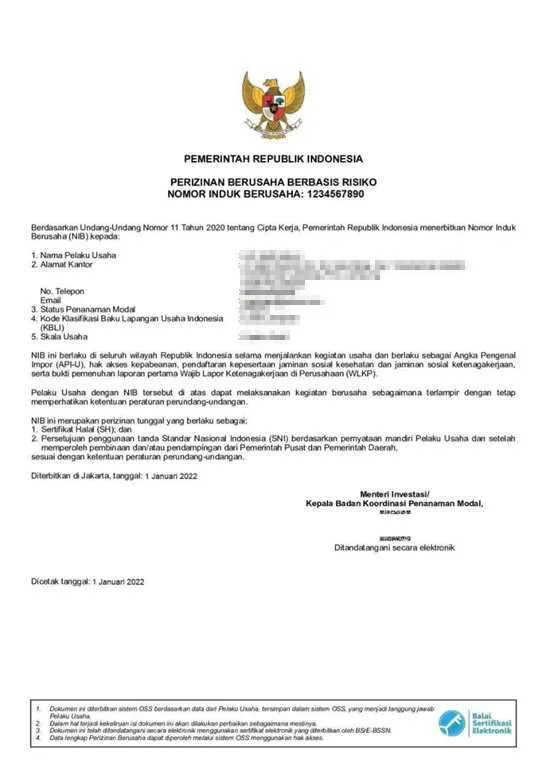
2. Register Products with BPOM or KEMENKES
- Cosmetics & Food: Must be registered with BPOM via the Notification System (cosmetics) or SP-ONLINE (food). After approval, BPOM issues a Distribution Permit Number (Notifikasi/NIE) which must appear on product labels.
- Medical Devices: Must be registered through the Ministry of Health (Kemenkes). Only local entities with an IDAK can apply. Foreign brands must appoint a local authorized representative.

3. Get Import Certificates (SKI)
For each shipment, BPOM requires an Import Certificate (SKI) before customs clearance. SKIs are batch-specific and must be requested in advance. Your distributor usually handles this.
Key Checklist – Legal Permits
![]() NIB (Business/Import License). Needed by any importer under OSS.
NIB (Business/Import License). Needed by any importer under OSS.
![]() BPOM Product Registration. Necessary for cosmetics, food, drugs (distribution permit/notifikasi from BPOM). Ensure your distributor or agent has registered your product and obtained its BPOM number.
BPOM Product Registration. Necessary for cosmetics, food, drugs (distribution permit/notifikasi from BPOM). Ensure your distributor or agent has registered your product and obtained its BPOM number.
![]() BPOM Import Certificate (SKI). Required for imported cosmetics/food. The distributor can apply via BPOM for an SKI Border permit.
BPOM Import Certificate (SKI). Required for imported cosmetics/food. The distributor can apply via BPOM for an SKI Border permit.
![]() Medical Device License (IDAK/IPAK). The local partner must have an IDAK (formerly IPAK) before distributing any medical device. Verify they hold this and have registered each device.
Medical Device License (IDAK/IPAK). The local partner must have an IDAK (formerly IPAK) before distributing any medical device. Verify they hold this and have registered each device.
![]() Other permits. For some products, Indonesian standards (SNI) or halal certificates may be required. Discuss with the distributor if these apply.
Other permits. For some products, Indonesian standards (SNI) or halal certificates may be required. Discuss with the distributor if these apply.
Finding Potential Distributors
Tap official networks and trade events. Start by contacting your country’s trade office or embassy in Indonesia, and local chambers of commerce. These organizations often maintain lists of registered distributors in various sectors. For example, industry associations (like ASPAKI for medical devices or the Indonesian Cosmetic and Fragrance Association) can suggest experienced partners. Attend trade shows and conferences: Indonesia hosts sector-specific expos (e.g. Medlab Asia, IFRA for cosmetics, Food & Beverage Indonesia) where you can meet distributors face-to-face. Meeting in person helps gauge professionalism and network coverage.
Use reputable directories wisely. Online B2B platforms or exporter directories may list Indonesian importers and distributors, but exercise caution: verify any contact through independent means. Look for distributors with websites, Google their company name, and see if they list real references or case studies. Avoid cold-calling unverified leads. Instead, ask for introductions from trusted local partners or consultants who already work in Indonesia.
Check credentials early. Before engaging in serious talks, ask each candidate distributor to provide: their company registration (NPWP), NIB, and any sector-specific licenses (BPOM registration number, IDAK, etc.). If they hesitate or cannot provide proof, that’s a red flag. You want partners who already understand Indonesian regulations, not those who learn on the job. Services like local due-diligence providers can run background checks on the company’s history and ownership.
Use a local agent or lawyer. For first-time exporters, working with a local legal advisor or market entry consultant can expedite finding reliable distributors. These professionals often have on-the-ground knowledge of which distributors are reputable. They can also check if a distributor’s licenses (e.g. BPOM notifications) are valid and up to date. While it adds cost, a one-time fee for a local consultant is a small price to avoid a bad partnership.

Image by katemangostar on Freepik
Vetting and Contracting Checklist
Once you have candidate distributors, apply a rigorous vetting process. Below are key factors and steps:
- Validate Business Status and Licenses: Ensure the distributor is a legally registered Indonesian entity (typically a PT company). Confirm their NIB is active. Critically, check their distribution licenses: do they have a BPOM Distribution Permit/Notifikasi for each cosmetic/food item they claim to handle, or an IDAK for medical devices? Ask to see copies of their BPOM registration certificates or IDAK license. These documents have serial numbers you can cross-check on the official BPOM/Kemenkes portals.
- Check Experience and Network: How long has the company been in business? What products or brands do they currently distribute? Ask for case studies or references from existing clients (ideally other foreign brands).
- Assess Logistics and Facilities: Visit the distributor’s office or warehouse if possible (even virtually via video). Verify they have appropriate storage facilities – for instance, climate control for food or secure areas for medical products.
- Legal and Contractual Terms: Be clear in defining the territory (even within Indonesia), the scope of products, sales targets, and exclusivity (if any). Draft a detailed distribution agreement covering pricing policy, payment terms, branding guidelines, intellectual property usage, confidentiality, and termination clauses.
- Perform Due Diligence: Before finalizing any deal, conduct formal due diligence.
Checklist – Vetting a Distributor
![]() Does the distributor hold a valid NIB and local business license?
Does the distributor hold a valid NIB and local business license?
![]() Do they have the required product permits (BPOM Distribution Permit for cosmetics/food, IDAK for devices)? Verify the permit numbers.
Do they have the required product permits (BPOM Distribution Permit for cosmetics/food, IDAK for devices)? Verify the permit numbers.
![]() Can they demonstrate a strong distribution network (regional coverage, warehousing)?
Can they demonstrate a strong distribution network (regional coverage, warehousing)?
![]() Do they offer references from other foreign companies they serve?
Do they offer references from other foreign companies they serve?
![]() Are their finances and payment terms acceptable (creditworthy, clear terms)?
Are their finances and payment terms acceptable (creditworthy, clear terms)?
![]() Is there a clear, legal distribution agreement in place (in English and Indonesian) outlining responsibilities?
Is there a clear, legal distribution agreement in place (in English and Indonesian) outlining responsibilities?
![]() Have you used professional services (legal, consulting, due diligence) to check them?
Have you used professional services (legal, consulting, due diligence) to check them?
Logistics and Local Considerations
Indonesia’s geography – thousands of islands – means logistics can be challenging. Discuss with potential distributors how they plan to reach customers across the country. A distributor with multiple regional warehouses (e.g. in Java and eastern Indonesia) or partnerships with local firms can ensure faster delivery. Ask about their shipping and customs practices. Ideally, they should be able to handle import clearance (using the SKI, customs docs, etc.) and arrange freight or inland transport to major cities.
Keep in mind storage and shelf life. Cosmetics and food often require temperature control or humidity management. Verify that the distributor’s warehouses meet any “Good Distribution Practices” standards (for example, medical devices require GDPMD compliance). If products have expiration dates, plan regular shipments or consignment stock to avoid wastage.
Language and labeling are also critical. Indonesian law generally requires product labels and manuals in Bahasa Indonesia. Ensure your partner understands these requirements. They may need to translate ingredient lists, usage instructions or warnings. Provide all technical documents in advance and coordinate on any rebranding necessary for Indonesia.
Finally, be aware of payment and currency issues. Most distributors prefer transactions in USD or IDR. Using Letters of Credit (LC) through a reputable local bank can protect both sides. Confirm whether your distributor requires advances or deposits on orders. Keep communication open about pricing fluctuations (e.g. tariffs, fuel surcharges) that might affect cost.
Actionable Steps and Checklists

Remember that BPOM and KEMENKES websites often have public databases (in Indonesian) where you can check registration numbers and company details. If a distributor promises to handle licensing, you can independently verify the outcome online.
Summary
Entering the Indonesian market demands both careful partner selection and strict compliance. Start by understanding the regulatory landscape – obtain your own import license (NIB) and ensure products are registered with BPOM or KEMENKES. Then focus on distributors: use trade networks to find candidates, rigorously vet their legal standing and track record, and insist on transparent contracts. A reliable distributor in Indonesia will have the necessary BPOM/KEMENKES permits (e.g. Notifikasi or IDAK) and the logistical capacity to serve a sprawling market. By following the steps and checklists above, exporters can build a professional, trust-based partnership that helps their cosmetics, food, or medical products reach Indonesian consumers safely and legally.
Do you need assistance registering your product in Indonesia?
Contact us today to start your registration process.
